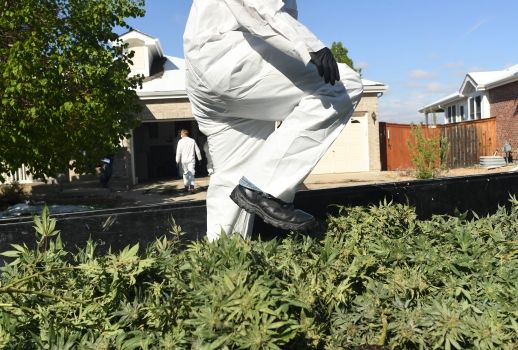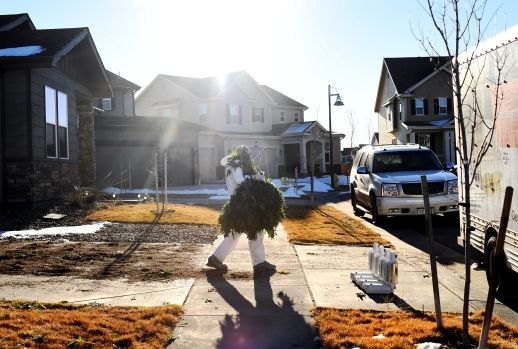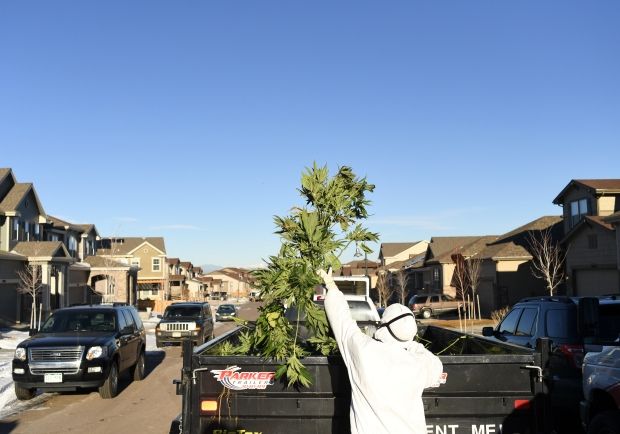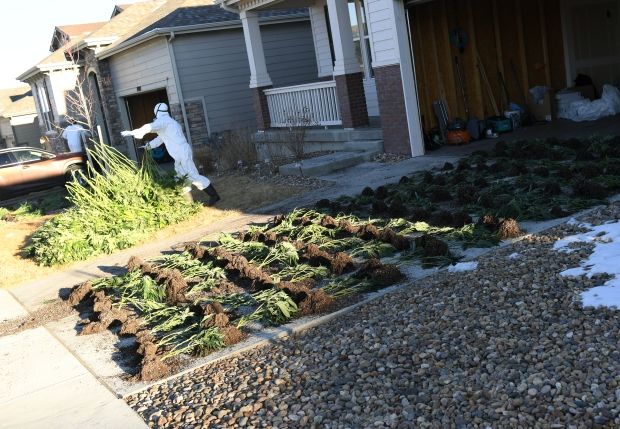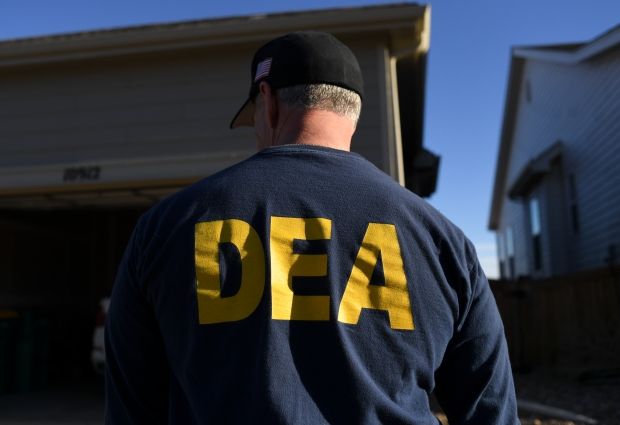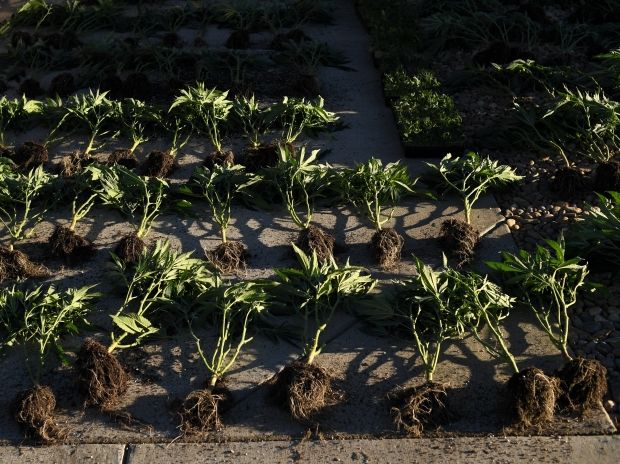bulllee
Well-Known Member
Medical marijuana laws in Colorado will be more strict starting Jan. 1. Here’s how.
New rules for buyers and sellers were announced this week
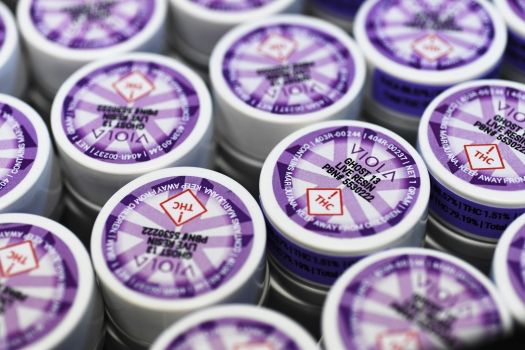
Hyoung Chang, The Denver Post
Photo taken packaged 1g marijuana concentrates of Viola in Denver, Colorado on Wednesday, March 10, 2021.
By ALEX BURNESS | aburness@denverpost.com | The Denver Post
November 11, 2021 at 1:16 p.m.
Colorado will impose stricter rules for the purchase of medical marijuana starting Jan. 1 following several months of deliberation over how to execute a new state law meant largely to limit young people’s access to and abuse of high-potency THC products.
Mark Ferrandino, executive director of the state’s Department of Revenue and a former speaker of the Colorado House of Representatives, announced the rules late Tuesday night. He had final say, but received heavy input from state marijuana enforcement officials and a task force that included parents, health professionals and marijuana industry representatives. That task force was formed by the new law passed this year, HB21-1317, that represented the state’s most significant overhaul of marijuana regulations since recreational legalization in 2012.
In the process of passing that bill, the legislature heard stories parents shared about the dramatic effects some marijuana products have had on their children. Parents spoke of psychosis, suicidal thoughts and nonstop vomiting, among other issues, and by the time the legislature was to vote on the bill, nearly all members — 93 out of 100 — were convinced of a need to tighten the law.
Of particular concern to the legislature are products such as wax and shatter that, unlike traditional marijuana flower, are concentrated products made in labs containing much higher percentages of THC — the main psychoactive compound in cannabis — than even the most potent flower.
The new rules, which in limited cases also affect recreational buyers, include:
Daily purchase limits
The state will limit the daily purchase to two ounces of flower and eight grams of concentrate such as wax and shatter for medical marijuana patients. The concentrate limit goes down to two grams per day for medical patients between the ages of 18 and 20. The previous daily concentrate purchase limit for medical patients was 40 grams.Dispensaries must enforce the daily purchase limits by inputting patient ID numbers found on medical marijuana cards. Stores are to refuse sale to anyone who seeks to exceed their purchase limit. All data collected must be kept confidential.
Exceptions
Exceptions to the new limits apply only to a patient whose doctor affirms in writing that the patient has a physical or geographic hardship that should allow them to exceed the daily purchase limits, and that the patient has designated a store as the primary place they get their medicine.Examples of ways people can qualify for a hardship include: restricted mobility as a result of a debilitating condition, lack of access to a driver’s license due to a debilitating condition or lack of access to public transit or ride-sharing services due to a debilitating condition. Exceptions can also apply to people who live outside of populous Adams, Arapahoe, Boulder, Denver, Douglas, El Paso, Jefferson, Larimer or Pueblo counties and who also cannot access medical marijuana (or their preferred medical marijuana concentrate) in their home county.
Public education
An educational resource in the form of an 8×11 paper pamphlet must be provided to customers (medical and recreational) at the point of sale of a concentrate. This pamphlet will include a black dot, smaller than a fingernail, displaying the state’s recommended serving size for concentrates. It will also feature advice on how to safely consume and a list of negative conditions the state declares can result from the use of marijuana concentrate, including psychotic symptoms, “uncontrolled and repetitive vomiting” and “physical and psychological dependence.” The pamphlet will list numbers to various hotlines for people experiencing any of those problems.Advertising
Medical marijuana dispensaries are specifically barred from marketing to people under the age of 21. That’s a change from the previous ban on advertising to people under 18. The state considers it a violation if an advertisement appears in a form of media estimated to have at least 28.4% of its audience younger than 21. In advertising concentrates, medical and recreational businesses must both include language approved by the state that warns of the risks of overconsumption.Ferrandino was not available Thursday to discuss the new rules, a spokeswoman said.
The law that led to the rules also directs the Colorado School of Public Health to analyze existing research “related to the physical and mental health effects of high-potency THC marijuana and concentrates” — and its results could influence future policy decisions at the Capitol.
Denver Democrat Alec Garnett, current House speaker and a lead sponsor of the bill that led to the rules, said he’s confident in Ferrandino’s decisions and that he isn’t planning any new legislation regulating marijuana for the 2022 session, which begins in January, days after the new rules go into effect.
“I would assume it’s a quieter session on this topic,” Garnett said.
The past session was anything but. HB21-1317 was the product of months of meetings and it drew massive bipartisan support from the legislature as well as dire warnings from medical marijuana patients and advocates concerned about restricted access to medicine.
Some of those fears remain, Truman Bradley, executive director of the Marijuana Industry Group, said at a hearing earlier this month when the rules were being finalized.
“I have some concerns that when these rules are put into effect on Jan. 1 that there’s going to be a whole group of medical patients that are caught up in this sort of gray area where they’re not sure what they can legally purchase,” he said. “Remember, we’re talking about medicine here. This is really important, and I don’t want to see them left behind.”
But Bradley said Thursday it’s too soon to tell whether patients will experience that confusion. He said he hopes other lawmakers join Garnett in refraining from further legislation this year, to leave time for “the impacts of these rules to be fully implemented and understood.”
Although the new rules touch on recreational marijuana, too — namely regarding the educational pamphlet — the rules for non-medical consumers aren’t really changing. Recreational users can still buy up to one ounce of flower per day, or up to eight grams of concentrate.
The purchase age for recreational products remains 21, whereas people over 18 can seek medical cards. The lower age for medical patients, combined with the (previously) much higher daily concentrate purchase limits for that group, is a big reason the legislature was so focused on the medical side of the industry.
“The prime thing is to reduce the access for teenagers,” Democratic Rep. Yadira Caraveo of Thornton, who sponsored the bill along with Garnett, said in June as the governor signed it into law.
At the same time it has pursued these tougher regulations, the legislature has shown increasing openness to the use of cannabis in children to treat epilepsy and other issues, even legalizing the storage and administration of medicinal cannabis products in schools.
Dawn Reinfeld, a Boulder parent who heads the advocacy group Blue Rising Together and who rallied other parents to back HB21-1317, said in a text message Thursday that she’s “pleasantly surprised” by the new rules, and especially by the thresholds people will have to meet in order to demonstrate hardship sufficient to exempt themselves from the daily purchase limits.
“We mobilized dozens of advocates to counter the industry’s power throughout the rule-making proceedings, and we feel that the final rules reflect our advocates’ concerns because of the stories and experiences they shared about how high-potency THC has impacted their lives,” she said.


